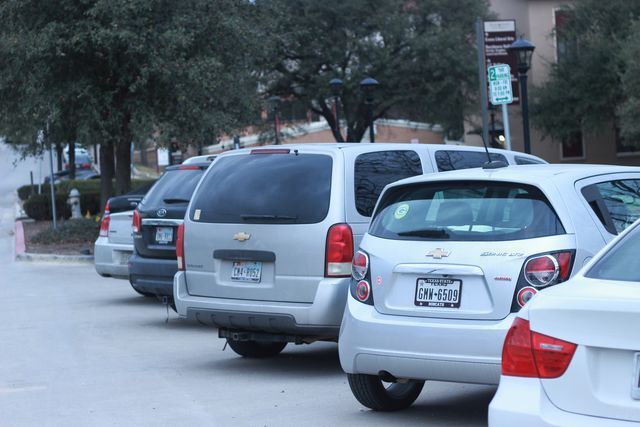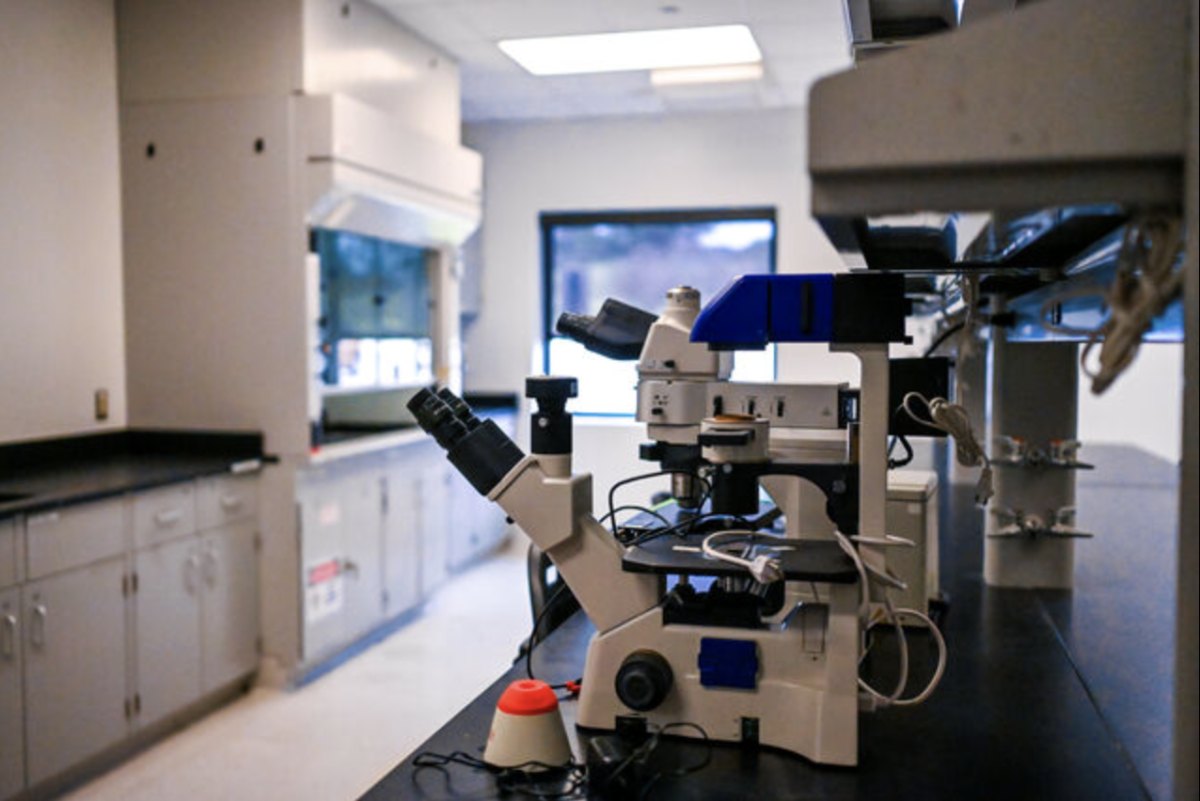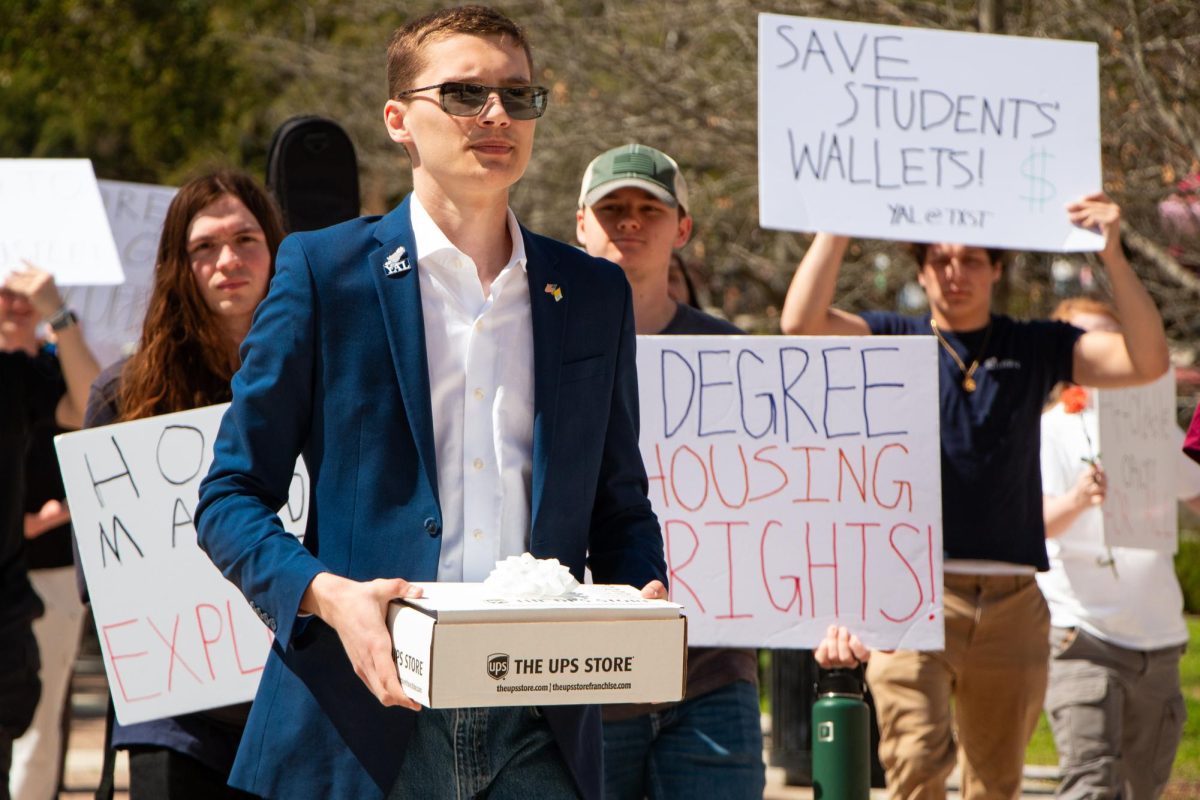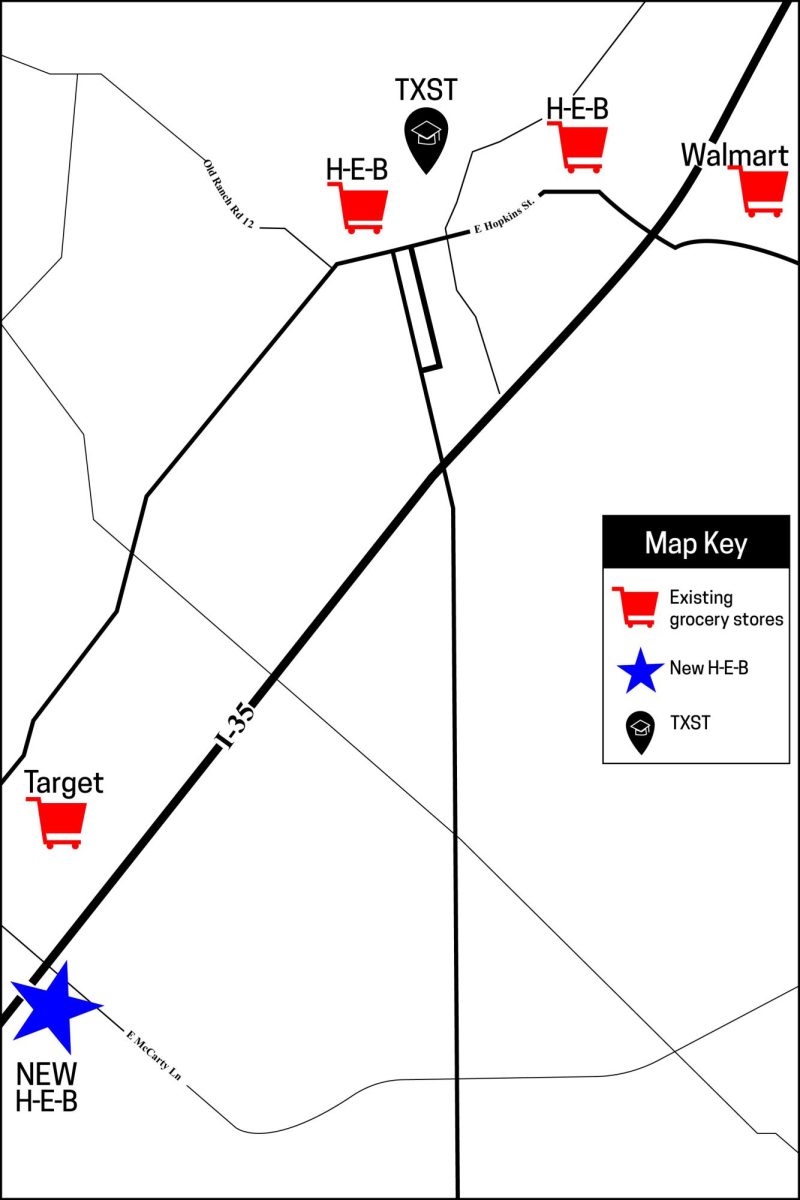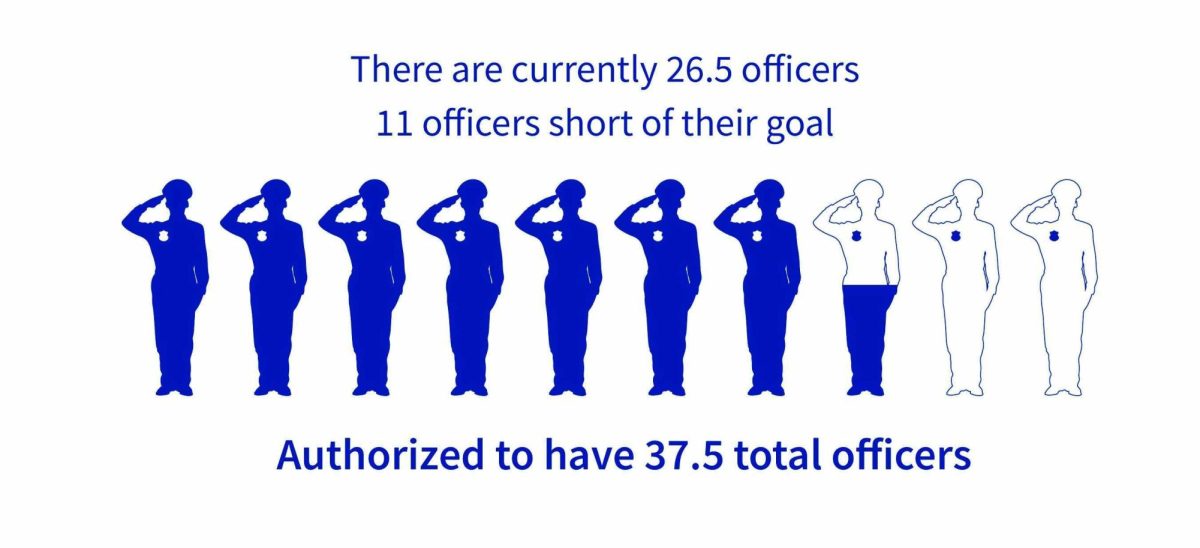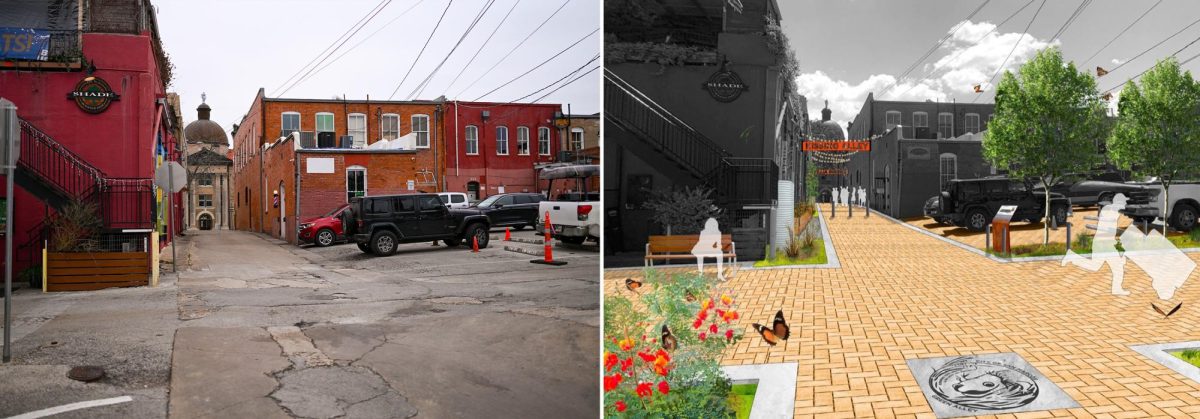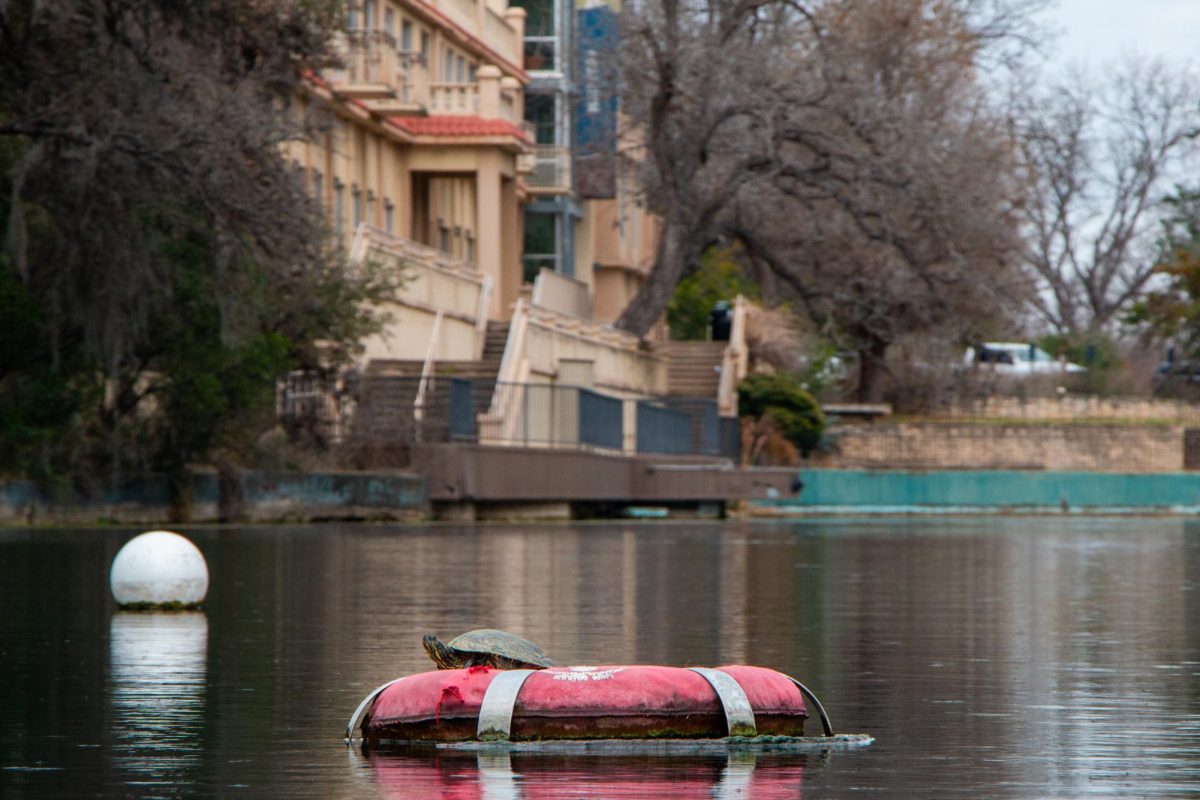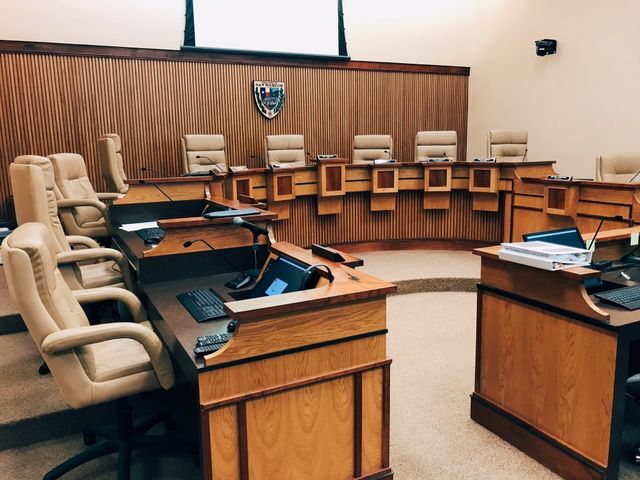The city of San Marcos will introduce a new system on police vehicles to improve the efficiency of parking monitoring that could impact students who choose to park while attending class.
The License Plate Recognition system, set to roll out March 5, will serve to help police officers monitor how long vehicles have been parked in time-restricted spaces. Examples of these spaces are found across downtown and are often restricted to two hours of use between the hours of 8 a.m. and 5 p.m.
Kevin Burke, economic development administrator, said the goal of implementing the LPR technology will be to aid in loosening up accessibility for visitors downtown by preventing students and business owners from parking in the spaces for extended stretches of time for class or the workday.
“It will free up parking spaces for people who want to come and visit us, not students who want to park close to campus or employees who want to sit in a parking spot for eight hours while they work,” Burke said. “What we want to do is increase turnover and allow more people to use those parking spaces on a regular basis.”
Currently, patrolling parking spaces requires officers to mark vehicle tires with chalk, then return later to issue tickets if necessary. The LPR system will allow the marking process to happen digitally based on license plate numbers and GPS location and will notify officers when a vehicle has been parked for too long.
“Right now when they are actually chalking the tire. If they want to give somebody a ticket, they have to walk by, see a car parked there, chalk the tire at a certain time… then they have to circle around approximately every two hours,” Burke said. “What this system does is automate that process.”
The adoption of LPR represents an effort to make San Marcos more accessible to people who would want to visit from out of town, as well as a step toward the larger goal of encouraging alternative transportation over single person commuting.
Esteban Gonzalez, computer science freshman, said that students already have a hard time parking and believes it is not fair to punish them for wanting to park close to campus.
“People try to park close to campus so they don’t have to walk as much and for them to restrict them or ticket them or move their car kind of seems unfair to them,” Gonzalez said.
Texas State will also be deploying the technology, but it will serve a different function than what it does for the city and will not be active until fall 2019. This is because the implementation of the university’s LPR will coincide with a complete digitalization of the current parking permit system.
Stephen Prentice, associate director of Parking Services on campus said the change could significantly affect students.
“Not this year, but next year we will have virtual permits,” Prentice said. “The permit that used to be on your windshield is now gonna be on the front and back of your car as your license plate.”
The LPR system will scan the license plates of cars parked on campus and tell the parking monitor whether or not each vehicle is registered with the appropriate digital permit. If the vehicle is not, a ticket may be placed on the vehicle’s windshield.
The system works by using a mounted camera to take an image of parked vehicles in the context of the parking space along with an image of the license plate and the vehicles GPS location. As the patrol car passes a series of parked vehicles, for example on North LBJ, this information is collected for each space. Upon driving past the spaces again, the system updates the vehicles parked and calculates the amount of time each vehicle has occupied its respective space.
If any spaces have been occupied beyond their designated time allowance, the officer driving by will be notified so they may distribute any appropriate tickets. The tickets will still be distributed by the officers and left on the windshields of vehicles. The LPR system itself does not distribute tickets and works only as a notification tool.
Categories:
Students illegally parking on the Square could see rise in tickets
February 22, 2018
San Marcos currently has free two hour parking.
Photo by Elza Taurins | Staff Photographer
0
Donate to The University Star
Your donation will support the student journalists of Texas State University. Your contribution will allow us to purchase equipment and cover our annual website hosting costs.
More to Discover


